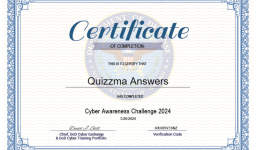Source: Excerpt from “Civil Disobedience” By Henry David Thoreau
Text-Dependent Answers
| Question | Answer |
|---|---|
| PART A: Which statements best summarize the TWO main claims of the text? | Citizens must challenge and attempt to change the wrongs of the state; it is not enough to work within the system. |
| PART B: Which TWO phrases from the text best support the answers to Part A? | “…and yet these very men have each, directly by their allegiance, and so indirectly, at least, by their money, furnished a substitute.” (paragraph 1) “…but if it is of such a nature that it requires you to be the agent of injustice to another, then, I say, break the law.” (paragraph 6) |
| How does paragraph 6 contribute to the development of the main ideas of the passage? | It supports the idea that we must not participate in injustice. |
| PART A: Which statement best describes Thoreau’s views on petitioning the government to effect change? | Petitioning the government is useless because it does not always result in action. |
| PART B: Which quote best supports the answer in Part A? | “It is not my business to be petitioning the Governor or the Legislature any more than it is theirs to petition me; and if they should not bear my petition, what should I do then?” (Paragraph 7) |
How does Thoreau’s use of rhetorical questions contribute to the persuasiveness and
message in “Excerpt from ‘Civil Disobedience?’”
Thoreau’s use of rhetorical questions contributes to the persuasiveness and message in “Excerpt from ‘Civil Disobedience'” by engaging the reader in critical thinking, challenging them to question their own beliefs and the status quo, and emphasizing the logical and moral inconsistencies in the government and society’s actions.
Discussion Answers
In “Excerpt from ‘Civil Disobedience’” Thoreau states that “If I devote myself to other
pursuits and contemplations, I must first see, at least, that I do not pursue them sitting upon another man’s shoulders. I must get off him first, that he may pursue his
contemplations too” (Paragraph 1).
To what extent do you agree with this? What examples can you draw on from your own experience and the world around you where people are ensuring that they are not “sitting upon another man’s shoulders?”
This principle emphasizes the importance of independence and fairness in one’s actions and decisions. It encourages individuals to consider the impact of their actions on others and to strive for self-sufficiency and mutual respect.
Examples in modern society might include advocating for fair labor practices, supporting equal opportunities, and ensuring that one’s success does not come at the expense of others’ rights and well-being.
In “Excerpt from ‘Civil Disobedience’” Thoreau argues that citizens should do the right thing by challenging the unjust laws that exist. What does it mean to be a good citizen? Is it the same thing as being a good person? Draw on the article, your own experience, and other literature, art, or history in forming your answer.
Being a good citizen, according to Thoreau, involves actively engaging with and challenging the injustices of one’s government, which can also align with being a good person if one’s moral and ethical beliefs call for standing against injustice.
The distinction lies in the public versus private nature of these actions, but both roles converge on the idea of integrity and moral responsibility.
How can a “majority of one” create change? Draw on the article, your own experience, and other literature, art, or history in forming your answer.
A “majority of one” underscores the power of individual conviction and action to influence broader societal change. It suggests that a single individual, armed with righteousness and determination, can initiate change by standing firm in their beliefs, inspiring others, and gradually building momentum for larger movements.
In the context of the text, what is fair? Draw on the article, your own experience, and other literature, art, or history in forming your answer.
Fairness, as depicted by Thoreau, involves the equal consideration and treatment of all individuals, the right to challenge and dissent against injustice, and the responsibility to act ethically and justly, even against the norms or laws of the state.
It calls for a balance between individual rights and communal responsibilities, advocating for a society where laws and practices reflect true equity and moral integrity.




Leave a comment